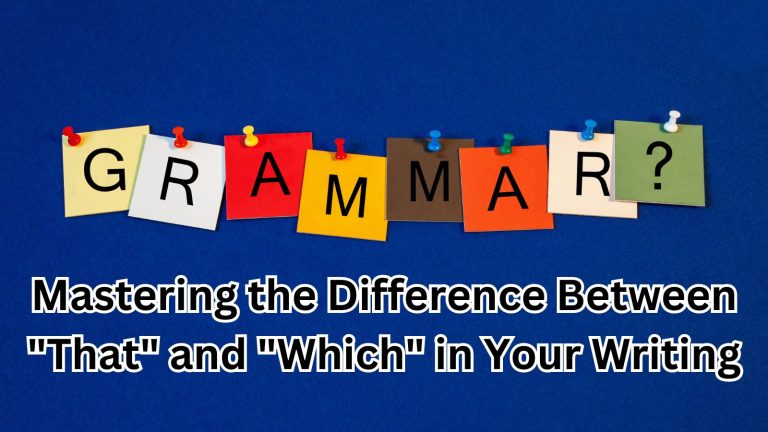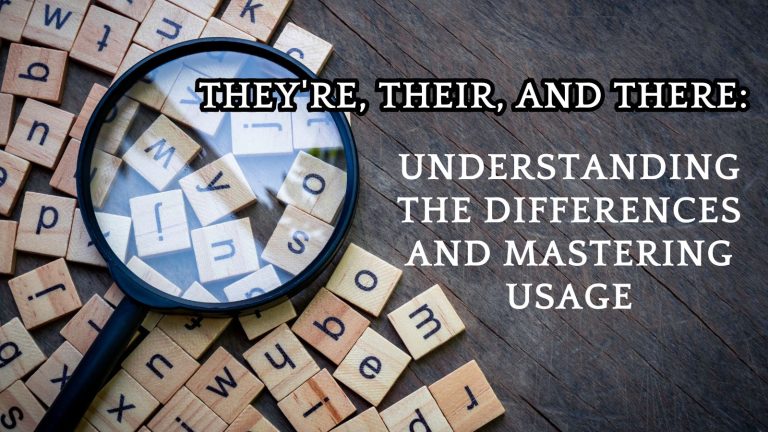Grammar Help
Introduction to the Grammar Help Category: The Importance of Grammar for Writers
As a writer, you know that crafting compelling stories, engaging articles, or persuasive essays requires more than just a creative mind and a passion for your topic. To effectively communicate your ideas and captivate your readers, you need to have a solid grasp of grammar. Grammar is the foundation upon which clear, precise, and effective writing is built. It is the set of rules and conventions that govern how words are combined to create meaningful sentences, paragraphs, and ultimately, entire pieces of writing.
In this Grammar Help category, we will explore the various aspects of grammar and how they contribute to better writing. We will delve into the intricacies of parts of speech, sentence structure, punctuation, and more. By understanding and mastering these elements, you will be equipped with the tools necessary to elevate your writing and ensure that your message is conveyed clearly and effectively to your audience.
One of the primary reasons why grammar is so crucial for writers is that it helps to establish clarity in your writing. When you use proper grammar, your sentences are structured in a way that is logical and easy to follow. This means that your readers can focus on your ideas and arguments without being distracted by confusing or ambiguous language. Poor grammar, on the other hand, can lead to misinterpretation, confusion, and even frustration on the part of your readers. By ensuring that your writing is grammatically correct, you are demonstrating respect for your audience and their time.
Another important aspect of grammar is that it helps to create a sense of professionalism and credibility in your writing. Whether you are writing a blog post, a business report, or an academic essay, using proper grammar shows that you are serious about your work and that you have taken the time to proofread and polish your writing. This attention to detail can go a long way in establishing trust with your readers and building your reputation as a competent and reliable writer.
Moreover, good grammar is essential for effective communication. When you use the correct words, punctuation, and sentence structure, you are able to convey your thoughts and ideas with precision and clarity. This is particularly important when writing for a specific audience or purpose. For example, if you are writing a technical manual, using precise and accurate language is crucial for ensuring that your instructions are understood and followed correctly. Similarly, if you are writing a persuasive essay, using grammar effectively can help you to build a strong argument and convince your readers to see things from your perspective.
In addition to clarity, professionalism, and effective communication, good grammar also contributes to the overall flow and coherence of your writing. When your sentences are well-constructed and your ideas are logically connected, your writing becomes more engaging and easier to read. This is because proper grammar helps to create a sense of rhythm and balance in your writing, making it more enjoyable for your readers to follow along.
It is worth noting that while grammar is important, it is not the only factor that contributes to good writing. Other elements such as style, tone, and content also play a significant role in creating effective and engaging writing. However, without a strong foundation in grammar, these other elements can fall flat. Think of grammar as the building blocks upon which your writing is constructed. If those blocks are not properly aligned and secured, the entire structure of your writing may be compromised.
In the articles within this Grammar Help category, we will explore various grammar topics in-depth, providing you with the knowledge and tools you need to improve your writing. We will cover everything from basic parts of speech and sentence structure to more advanced concepts such as verb tenses, subject-verb agreement, and comma usage. By mastering these grammar essentials, you will be well on your way to becoming a more confident and skilled writer.
It is important to remember that improving your grammar is an ongoing process. Even the most experienced writers continue to learn and refine their skills over time. The key is to approach grammar not as a set of rigid rules to be memorized, but rather as a tool to enhance your writing and communicate more effectively with your readers.
So, whether you are a beginner just starting out on your writing journey or a seasoned writer looking to brush up on your grammar skills, this Grammar Help category is here to support you. We encourage you to explore the articles, practice the concepts, and apply what you learn to your own writing. With dedication and practice, you will soon see the positive impact that good grammar can have on your writing and your ability to connect with your audience.
Remember, grammar is not just about following rules for the sake of it. It is about using language in a way that is clear, precise, and effective. By mastering the fundamentals of grammar, you are empowering yourself to communicate your ideas with confidence and clarity, and to create writing that truly resonates with your readers.
In conclusion, grammar is an essential tool for any writer who wants to create compelling, professional, and effective writing. By understanding and applying the rules and conventions of grammar, you can elevate your writing and ensure that your message is conveyed clearly and effectively to your audience. So, dive into the articles in this Grammar Help category, embrace the power of good grammar, and watch as your writing skills soar to new heights.












